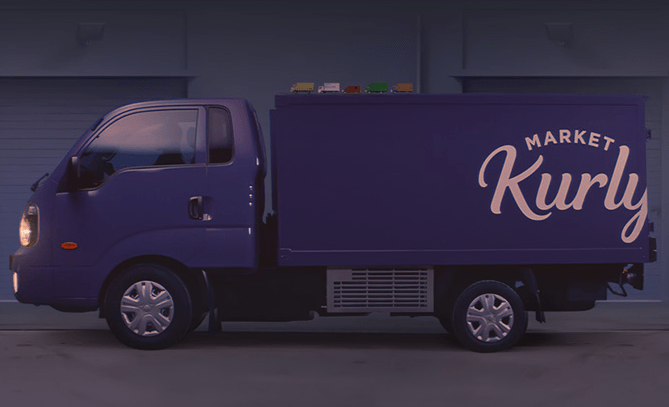South Korean e-grocer Kurly has raised an undisclosed amount of funding to build out its fulfillment capabilities and customer base, a company spokesperson told AFN.
The Korean Economic Daily reported that the capital injection was worth $150 million and comes from existing investors DST Global, Hillhouse Capital, and Sequoia Capital.
However, the Kurly representative told AFN that the round remains open, and the final funding amount is yet to be confirmed as it’s still “discussing” the raise with prospective investors. They couldn’t confirm if the capital would be tacked on to the startup’s Series D round – which was announced last year – or would become the first tranche of a new Series E round.
“We are planning [to use the funding for] a new fullfillment center in Gimpo, and new customer acquisition,” the spokesperson said. Gimpo is a city just outside of Seoul which plays host to the capital region’s secondary airport and mainly handles domestic flights and cargo.
The representative added that they couldn’t share further details on the company’s valuation as the round is yet to close.
According to the Daily, the current round values the startup at around $780 million, and brings the its total funding to date to $329 million.
Kurly secured about $113 million from DST, Hillhouse, and Sequoia in its Series D fundraise last year.
Its online grocery portal, Market Kurly, launched in May 2015. It specialized in next-day delivery of household essentials, allowing shoppers to order fresh produce, eggs, and dairy products in the evening to arrive the following morning.
To achieve this, Kurly built what it claims to be South Korea’s first full, unbroken cold chain, with end-to-end refrigerated and temperature-controlled warehousing and logistics.
Sophie Kim, the company’s founder and CEO, is a former Goldman Sachs banker who also had stints at McKinsey & Co and Singapore sovereign fund Temasek.
Overnight delivery
Kurly’s competitors include SoftBank-backed e-commerce unicorn Coupang and SSG.com – the online branch of department store chain Shinsegae – both of which launched their own next-day grocery delivery services last year.
But it seems to be facing up to the challenge. The startup claims it had 3.9 million registered users at the end of 2019 – up 179% from the 1.4 million it reported at the end of 2018.
The repurchase rate of its customers – in other words, the proportion of first-time users who later returned to the portal to make additional purchases – was 61.2% last year. That’s twice the home shopping and internet shopping sectors’ average repurchase rate of 29%.
But while the e-grocer generated sales worth ₩429 billion ($23.8 million) last year – representing a 173% year-on-year increase – its operating losses widened by 193% from ₩33.7 billion in 2018 to ₩98.6 billion in 2019.
“Kurly’s goal has been to become the Amazon Fresh of Korea [and it] is clearly one of the leaders in this segment,” says Douglas Kim, an analyst with Smartkarma.
He suggests that Kurly’s focus on high quality, fresh food – as well as its fast delivery times, with orders placed by 11pm on customers’ doorsteps by 7am the next day – is what sets it apart.
In February, the company unveiled its first private-label product line – in the milk category – and plans to launch more private-label lines later this year.
Kurly’s marketing efforts have also served it well, Kim adds. It has incentivized first-time customers to sign up for membership by offering premium products such as cheesecake, imported European butter, and pork chops at massive discounts, charging as little as 100 won ($0.80) for each.
“Typically, these products cost ₩5,000 won ($4.10) or more, so the potential customer feels as if they are getting this product for free. Many people become members just so that they can purchase these products,” he says.
“One of the most difficult aspects of any e-commerce company is getting the customer to purchase products [and] Kurly uses the strategy described above to get that initial purchase and memberships from millions of customers. In addition, once they become members, if they are able to bring in other members, there are additional benefits and discounts on good purchases.”





